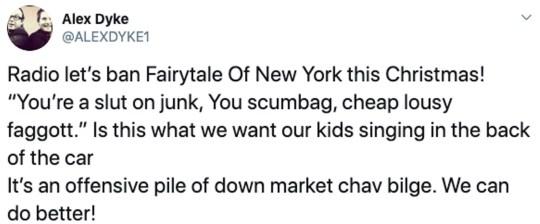Shane MacGowan defends ‘Fairytale of New York’ over homophobia accusations: ‘I don’t understand’
‘I’ve been told it’s insulting to gays... nobody in the band thinks that’s worth a second thought’
Your support helps us to tell the story
From reproductive rights to climate change to Big Tech, The Independent is on the ground when the story is developing. Whether it's investigating the financials of Elon Musk's pro-Trump PAC or producing our latest documentary, 'The A Word', which shines a light on the American women fighting for reproductive rights, we know how important it is to parse out the facts from the messaging.
At such a critical moment in US history, we need reporters on the ground. Your donation allows us to keep sending journalists to speak to both sides of the story.
The Independent is trusted by Americans across the entire political spectrum. And unlike many other quality news outlets, we choose not to lock Americans out of our reporting and analysis with paywalls. We believe quality journalism should be available to everyone, paid for by those who can afford it.
Your support makes all the difference.Shane MacGowan has defended the use of the word “f****t” in The Pogues’ 1987 Christmas song “Fairytale of New York”.
The song – a bitter conversation between two down-and-out New Yorkers performed in the style of an Irish folk ballad – sees Kirsty MacColl, in character, singing, “You scumbag, you maggot, you cheap lousy f****t”.
“I’ve been told it’s insulting to gays,” said Pogues frontman MacGowan on Ireland’s Late Late Show. “I don’t understand how that works. Nobody in the band thinks that’s worth a second’s thought.”
MacGowan has already defended the track’s use of the word “f****t”, writing in a statement in 2017, “The word was used by the character because it fitted with the way she would speak and with her character.
“She is not supposed to be a nice person, or even a wholesome person. She is a woman of a certain generation at a certain time in history and she is down on her luck and desperate.”
Earlier this year, a BBC radio presenter banned the song from his show after calling it an “offensive pile of downmarket chav bilge”.
BBC Radio Solent’s Alex Dyke tweeted that he wasn’t comfortable with the song’s lyrics. The tweet, which has since been deleted, said: “Radio, let’s ban ‘Fairytale of New York’ this Christmas! ‘You’re a sl*t on junk, you scumbag, cheap lousy f****t’ – is this what we want our kids singing in the back of the car?”
He continued: “It’s an offensive pile of downmarket chav bilge. We can do better!”
On his radio show, Dyke further explained to his listeners that he would not be playing the track this festive season. “I hope I’m not going to ruin your Christmas,” he said, “but I’ve decided that I am no longer comfortable with playing ‘Fairytale of New York’ by The Pogues and Kirsty MacColl.”
“I think Christmas songs should be about excited children, toys, Christmas trees, snowy streets, ski lodges, reindeer, wrapping paper, Santa, family, peace on earth and love,” the DJ added. “I just find The Pogues’ ‘Fairytale of New York’ a nasty, nasty song.”
Enjoy unlimited access to 100 million ad-free songs and podcasts with Amazon Music
Sign up now for a 4 month free trial (3 months for non-Prime members)
Enjoy unlimited access to 100 million ad-free songs and podcasts with Amazon Music
Sign up now for a 4 month free trial (3 months for non-Prime members)

“Fairytale of New York” is a source of annual consternation due to its lyrics, with some radio stations censoring the track to prevent possible offence.
“Fairytale of New York” reached number two in the UK Top 40 on its release in 1987, and continues to be one of the UK’s most popular Christmas songs. In 2018, it resurfaced to reach number four in the charts.
In a statement, a BBC spokesperson said: “This was Alex’s decision. There is no ban. We have a strict music policy that we expect to be followed.”

Join our commenting forum
Join thought-provoking conversations, follow other Independent readers and see their replies
Comments